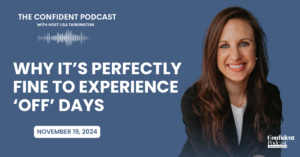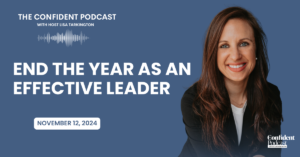In The Battle For Self-Love, I Will Always Rise To Fight Again
I, like so many others, have found myself constantly obsessed over the notion of social desirability. I strive to signify perfection, to become a woman who is both brilliant and beautiful. Womanhood is fraught with battles of perception, battles of the self against statuesque, slender, photoshopped models gracing glossy magazine covers. Some days, women lose those battles. Some days, I lose those battles. I fight valiantly — my sword a sharp mind — but I am knocked to the ground by societal expectations that infiltrate my most powerful weapon. In those instances, I must admit defeat.
I have convinced myself throughout my life that I am secure in my body, but I have come to realize that that is merely a notion. An ideal I have yet to reach, a fraudulent lie, a deception. I present as a tall, slender, able-bodied woman who loves her figure. The reality? I am a woman with a physical disability, and, thanks to society’s idolization of able-bodied beauty, I loathe my body. I scrutinize my every flaw, hoping that today won’t be the day that I am forced to “come out” to a new friend — or perhaps even a stranger — as disabled. The proof of my disability is in my slightly stiff, occasionally swaying gait, the tension in my arm, and my uneven, off-kilter hip bones.
I was a few weeks from graduating college when I was forced to stride into battle, to confront years of negatively skewed self-perception with nothing but my mind as a shield. I was prepared for a fun night of ping-pong and pizza in the study room with my friends, but woefully unprepared for the conversation that loomed ahead, threatening to break me. As I walked ahead of my friends — none of whom lived in my building — to open the door for them, I felt shame and insecurity penetrate my heart. I worried that tonight someone would ask about my gait, and I’d hang my head in shame as I obligatorily uncovered my ruse.
I suppose that my hips don’t lie, because, as we approached the elevator, one of my friends asked in a friendly, even tone if my legs were different lengths. I nearly froze in place, terrified that if I revealed the secret I desperately attempted to harbor, my fraught self-perception would soon become their perception of me, too. They didn’t know that I had leg length discrepancies and spent so many years visiting the best children’s orthopedic doctors for treatment, so they must have just observed it. I didn’t want to be viewed as a “person with a disability” forevermore, encumbered by a label not even an increasingly progressive society could remove. I felt relieved that my lilting gait itself remained unquestioned, as broaching the subject would have forced me to either deny my own life story or explain my deepest, most terrifying secret. My lifelong disability.
“Yes, as a matter of fact, my legs are different lengths,” I said, as confidently as I could muster. I made a half-hearted joke about my body being misaligned, but I wanted nothing more than to disappear. I scrutinized my friends’ faces for traces of pity. None was to be found. Why, then, did I feel so ashamed? It was not my friends’ fault that I constantly harbored undeserved hatred towards my body. That day, I lost the battle.
Later that night, I stood in front of the mirror loathing my uneven hips, my atrophied left leg, and my slightly curved spine for making me seem unattractive and undesirable. I know I’m not the only one with a curved spine, however, it can be difficult to live with it. Not only is it visible, curved spines can also cause pain sometimes. I remember my friend telling me about a scoliosis institute that she went to once to try and prevent some of the pain she was experiencing. Perhaps I’ll have to look at booking an appointment if the pain continues. I stared at my slender arms, desperately seeking any trace of beauty in my body, but they seemed bone-like and frail to me. My face — its own battlefield from years of unrelenting skin problems — reddened. My eyes grew puffy, with stinging tears hovering in the corners, threatening to fall. I felt trapped in this body — my body — for the rest of my life.
A year and a half later, after months of continually fostering the self-love I sought, but never thought I could attain, I stood in front of the mirror once again. Despite my long-held, crippling ambivalence to reveal my true self, my friends finally understood the pervasive struggles that stemmed from my flawed self-perception, loving me through all my battles. My mind, the weapon that had often failed me against magazine spreads of perfectly symmetrical, socially desirable women, was poised to fight for self-love.
As I found my eyes affixed on my stomach, still slightly bloated from a veritable feast just a few hours prior, all I could see was the enemy surrounding me as I stood alone on the battlefield. I could feel the harsh breath of my enemy against my ears as my gaze moved downward, towards my uncomfortably uneven hips. I nearly dropped my armor, surrendering to my longtime enemy as I silently criticized the stomach that sustains me, disparaged the legs that allow me the freedom of movement, and berated the hips that have revealed the truth — that resilience in the face of adversity trumps physical perfection.
I escaped the enemy the only way I know how. I fell asleep, the fog of my murky self-image still enshrouding me.
I awoke to find the fog lifted, the battlefield engulfed in sunshine. As I rose, my mind still poised to fight for the love I deserve, I discovered a renewed hope in my ability to reach complete self-love. Some days, I win in the valiant against society’s beauty ideals, some days, I lose. But until I see myself through a lens of wholehearted love — a lens no longer clouded by twinges of hatred — I will always rise to fight again.



